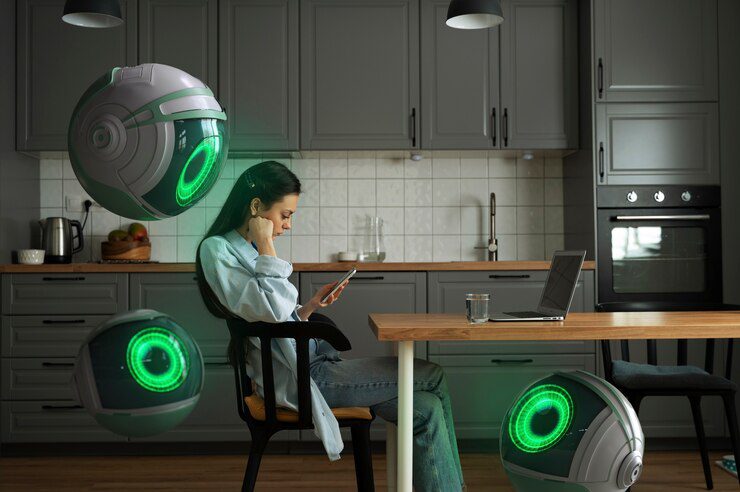The future of work is here, and it involves a new kind of colleague – one powered by algorithms and artificial intelligence (AI). Buckle up, because Google is at the forefront of this revolution, aiming to make AI your literal co-worker. But before you hit the panic button (or the “hallelujah” chorus), let’s unpack what this means and how it might impact your workday.
From Sci-Fi to Reality: AI Infiltrates the Office
Remember that scene in a futuristic movie where robots seamlessly collaborate with humans? Yeah, that’s not quite what Google has in mind (yet!). Their vision involves AI tools that integrate into your existing workflow, acting as a virtual assistant on steroids. Imagine a system that can:
Automate Mundane Tasks: Say goodbye to repetitive data entry, scheduling nightmares, and endless email threads. AI your literal co-worker could handle these time-sucks, freeing you to focus on higher-level strategic thinking.
Boost Productivity: Think of AI as your personal productivity ninja. Imagine it analyzing your workload, prioritizing tasks, and even suggesting the best tools for the job. That’s a recipe for getting more done in less time.
Enhance Collaboration: AI your literal co-worker could bridge communication gaps between teams and departments. It could translate languages in real time, summarize lengthy documents, and even identify potential roadblocks in projects.
AI: Friend or Foe? Navigating the Hype
Sounds too good to be true? While the potential benefits are undeniable, there are concerns to consider. Here’s a reality check:
Job displacement is a hot-button issue. Some fear that AI could automate many jobs out of existence. While repetitive tasks are at risk, experts believe AI will create new opportunities requiring different skill sets. The human touch is irreplaceable. While AI excels at data analysis, it lacks the creativity, empathy, and critical thinking skills that are essential for many jobs. AI your literal co-worker would be a valuable teammate, not a replacement.
Bias in AI algorithms is a real problem. AI systems are only as good as the data they’re trained on. Ensuring fairness and mitigating bias will be crucial in developing ethical AI tools.
The Future of Work: A Human-AI Collaboration
So, will AI your literal co-worker be a friendly robot sidekick or a job-stealing monster? The answer, as with most things in life, is somewhere in between. The future of work will likely involve a dynamic interplay between humans and AI. Here’s what you can expect:
The rise of “augmented intelligence.” Think of AI as a tool that augments your existing skills and knowledge, not a replacement. Together, humans and AI can achieve more than they could alone. A shift towards higher-level skills. As AI handles the routine tasks, human workers will need to focus on developing critical thinking, problem-solving, and creativity. Upskilling and lifelong learning will become essential. Also, by going all-in on generative AI, companies can revolutionize their creative processes, leveraging advanced algorithms to generate innovative content autonomously.
The need for a human-centered approach to AI development. The focus should be on creating AI tools that empower humans, not replace them. Transparency and ethical considerations will be paramount.
Are You Ready for Your AI Co-worker?
The rise of AI your literal co-worker, is inevitable. The question is, are you ready to embrace this change? Here are some tips to get ahead of the curve:
Stay curious and keep learning. Educate yourself about AI and its potential impact on your industry. Develop the skills that will be in demand. Focus on critical thinking, communication, and creativity. Embrace lifelong learning. The ability to adapt and learn new skills will be key to thriving in the future of work.
Conclusion
Ultimately, AI your literal co-worker, has the potential to revolutionize the way we work. By approaching this change with an open mind and a focus on upskilling, we can ensure that humans remain in the driver’s seat, leveraging AI to create a more productive and fulfilling work experience. So, get ready to welcome your new AI teammate – the future of work is bright!







